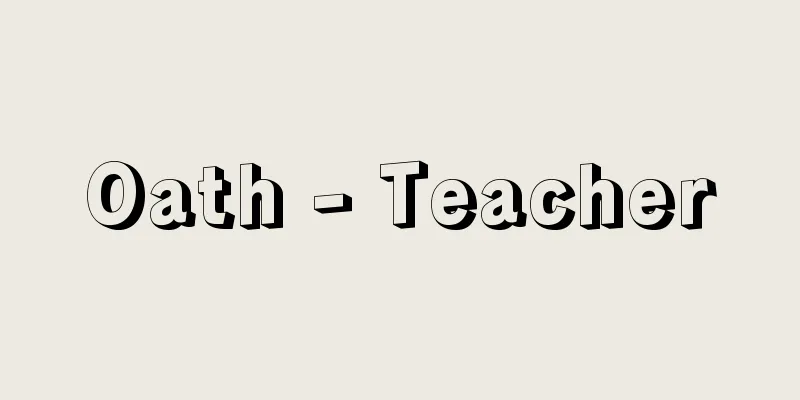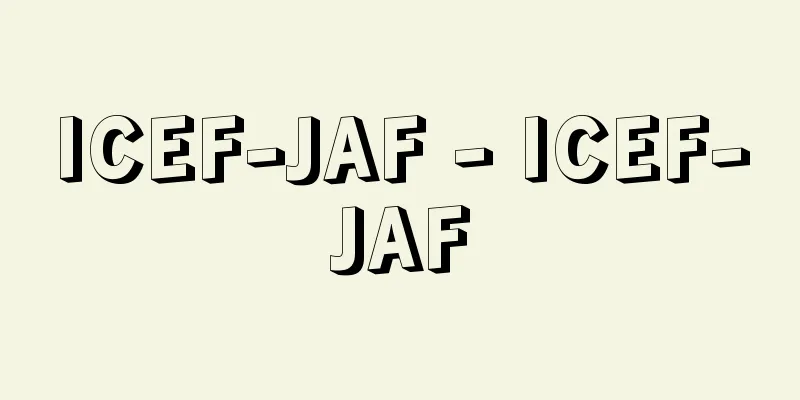Oath - Teacher

Oaths in legal historyOaths, called iusiurandum in Latin, oath in English, eid in German, and serment in French, were seen in all societies from very ancient times, and were an act of swearing one's truthfulness by betting oneself and one's property against magical or natural powers (self-curse), and it was thought that false oaths would result in the revenge of magical powers. Eventually, the idea of the revenge of magical powers changed to the idea of punishment by God. There are two types of oaths: true oaths and contract oaths. The former are generally oaths related to trials, and are seen in ancient Roman sacred stake legal proceedings, and also include the innocence oaths of ancient Germanic times. The latter is a formal act that promises the future actions of the oath-taker, and is thought to include the oaths taken by Roman magistrates when they took office and the oral contract. There are many other examples, such as the master-servant contracts of medieval Europe, the vassal oath of all free people to the Frankish king, and the Swiss Confederation as a sworn community. In this way, oaths have played an important role not only in legal history and trials but also in the formation of nations, and continue to do so to this day. [Atsushi Sato] Public Service OathUnder the National Public Service Law and the Local Public Service Law, new employees must sign an oath and submit it to the appointing authority before starting work. For national public employees, the wording is as follows, according to the "Cabinet Order on the Oath of Service for Public Employees": "Oath: I solemnly swear that I will be deeply aware of my responsibility to serve the public interest as a servant of the people, that I will abide by the Constitution of Japan, and that I will obey laws, regulations, and official orders from my superiors, and will perform my duties impartially and fairly," and the employee is required to sign the date and name. The format of the oath for local public employees is determined by ordinance, and includes phrases such as respect for the principles of local autonomy. There is a different format for police officers and firefighters. In addition, witnesses in each House of the Diet must read, sign and seal an oath which states, "I swear to tell the truth according to my conscience, to conceal nothing and to add nothing" (Law Concerning Oaths and Testimony of Witnesses in Houses of the Diet = House of Diet Testimony Act). [Yasuhito Abe] Procedural OathsWitnesses, expert witnesses, interpreters, translators, etc., swear to tell the truth according to their conscience when making statements, providing expert testimony, interpreting, or translating, or to provide honest expert testimony, interpreting, or translating (Civil Procedure Code, Articles 154, 2, 201, and 216; Criminal Procedure Code, Articles 154, 166, and 178). In civil cases, the parties are also allowed to take an oath during questioning (Civil Procedure Code, Article 207), and if a party who has taken an oath makes a false statement, he or she will be fined (Civil Procedure Code, Article 209). Those who cannot understand the purpose of the oath do not have to take it, and in civil cases, those under the age of 16 are not required to take an oath (Criminal Procedure Code, Article 155; Civil Procedure Code, Article 201). The oath is taken in advance using a written declaration (Civil Procedure Rules, Article 112; Criminal Procedure Rules, Articles 117, 118, 128, and 136). However, in civil cases, if there are special circumstances, the person may be required to take the oath after the fact (Article 112 of the Civil Procedure Rules). If a person refuses to take the oath without a valid reason, he/she may be ordered to pay a fine and compensation for costs (Article 201 of the Civil Procedure Code, Article 160 of the Criminal Procedure Code), and may also be subject to criminal penalties such as fines and detention (Article 201 of the Civil Procedure Code, Article 161 of the Criminal Procedure Code). If a person makes a false statement, appraisal, interpretation, or translation after taking an oath duly, it is a crime of perjury under the Criminal Code (Articles 169 and 171 of the Criminal Code). [Oide Yoshitomo] [References] | | | | |Source: Shogakukan Encyclopedia Nipponica About Encyclopedia Nipponica Information | Legend |
法制史における宣誓ラテン語ではiusiurandum、英語ではoath、ドイツ語ではEid、フランス語ではsermentというが、宣誓は非常に古い時代にはいずれの社会にもみられ、呪術(じゅじゅつ)的な力ないし自然の力に対して自身と財産を賭(か)け、自分の真実性を誓う行為(自己呪詛(じゅそ))であり、偽誓すれば呪力の復讐(ふくしゅう)を受けるものと考えられた。やがて呪力の復讐は神による制裁の観念へ変わった。宣誓には真実宣誓と約定宣誓とがある。前者は、一般に裁判にかかわる宣誓で、古ローマの神聖賭金(ときん)式法律訴訟にみられ、古ゲルマン時代の身の潔白を証明する雪冤(せつえん)宣誓もこれに属する。後者は、宣誓者の将来の行為について約束する要式行為であって、ローマの政務官の就任時の宣誓や問答契約もこれにあたると考えられ、また、ヨーロッパ中世の主従契約、全自由民のフランク王に対する臣民宣誓、宣誓共同体としてのスイス連邦など多数の例をみることができる。 このように宣誓は、法制史上裁判ばかりでなく国家形成においても、重要な役割を果たして今日に至った。 [佐藤篤士] 公務員法上の宣誓国家公務員法および地方公務員法上、新たに職員となった者は職務に従事するまえに宣誓書に署名して任命権者に提出しなければならないとされている。その文言は、国家公務員の場合、「職員の服務の宣誓に関する政令」により、「宣誓書 私は、国民全体の奉仕者として公共の利益のために勤務すべき責務を深く自覚し、日本国憲法を遵守し、並びに法令及び上司の職務上の命令に従い、不偏不党かつ公正に職務の遂行に当たることをかたく誓います」という書面に年月日を入れ、氏名をサインすることになっている。地方公務員の宣誓書の様式は条例で定められ、地方自治の本旨の尊重といった文言が入れられる。警察官、消防職員には別の様式がある。 なお、国会の各議院の証人も「良心に従って、真実を述べ、何事もかくさず、又、何事もつけ加えないことを誓う」旨が記載されている宣誓書を朗読し、署名捺印(なついん)する(議院における証人の宣誓及び証言等に関する法律=議院証言法)。 [阿部泰隆] 訴訟法上の宣誓証人、鑑定人、通事(通訳人)、翻訳人等が、供述、鑑定、通訳、翻訳する際、それぞれの良心に従って真実を述べ、または誠実に鑑定、通訳、翻訳することを誓うこと(民事訴訟法154条2項、201条、216条、刑事訴訟法154条、166条、178条)。民事では、ほかに、当事者尋問において当事者の宣誓が認められ(民事訴訟法207条)、また宣誓した当事者が虚偽の陳述をしたときは過料に処せられる(同法209条)。宣誓の趣旨を理解することができない者には宣誓をさせなくてもよく、民事の場合には16歳未満の者も一律宣誓義務がない(刑事訴訟法155条、民事訴訟法201条)。宣誓は、事前に宣誓書によって行う(民事訴訟規則112条、刑事訴訟規則117条、118条、128条、136条)。ただし、民事の場合には、特別な事由があれば事後に宣誓させることもできる(民事訴訟規則112条)。正当な理由なく宣誓を拒否した場合には、過料・費用賠償を命ぜられる(民事訴訟法201条、刑事訴訟法160条)ほか、罰金・拘留など刑罰の制裁もある(民事訴訟法201条、刑事訴訟法161条)。適法に宣誓したうえ虚偽の供述、鑑定、通訳、翻訳をすると刑法上の偽証罪になる(刑法169条、171条)。 [大出良知] [参照項目] | | | | |出典 小学館 日本大百科全書(ニッポニカ)日本大百科全書(ニッポニカ)について 情報 | 凡例 |
<<: Shaanxi Province - Teacher
Recommend
Floating floor - Ukiyuka
...In addition to these general floors, there are...
Imagination - Souzouryoku (English spelling) imagination
Imagination is the ability to imagine things that ...
Hirogoro Otani
…(4) 4th generation. Year of birth and death, and...
Social solidarity (English spelling)
In general, it refers to the form of interaction b...
Boxer, CR (English)
...Historian James Murdoch (1856-1921), writer L....
Courtship behavior
This refers to various behaviors exchanged betwee...
Nut moss (English spelling) nutmoss
...Ikubigoke means "boar's-necked moss&q...
Usukawamaimai (English spelling) Siebold's globular snail
A snail of the family Acanthidae in the class Gas...
Extreme physical properties
… [Physical properties under extreme conditions] ...
tourist court
…In the United States, as motorization progressed...
Emerson effect
This is an effect of enhancing photosynthesis tha...
Long - Chouzuru
[1] (independent verb) chau/zu (independent verb) ...
Outcault, RF (English) OutcaultRF
…A form of comics that was born in conjunction wi...
Osome - Osome
〘Noun〙 The nickname for the Kabuki Shosakuji "...
People in the country - Zaikokushu
〘Noun〙 (also "zaikokushu") During the Mu...









